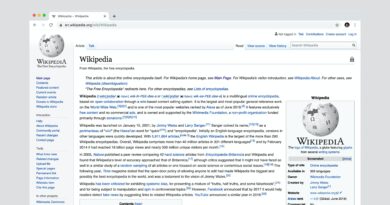Image by DanaTentis from Pixabay
Pensar naturalmente em uma língua estrangeira não acontece da noite para o dia, mas não é impossível. Neste vídeo, você aprenderá como começar a pensar em inglês com a mesma facilidade e espontaneidade de um falante nativo de inglês. Dica: Vai levar tempo e você terá que estar cercado de MUITO inglês. (Fonte: Youtube.com)
| Audio | |
|---|---|
Normal | Slow |
| English Transcript | Tradução |
| Hey guys, what's up, Stefanie the English coach here, from englishfulltime.com. | Ei pessoal, e aí, Stefanie, a English Coach aqui, do englishfulltime.com. |
| And in this video, we are going to talk about how to think in English. | E neste vídeo, vamos falar sobre como pensar em inglês. |
| Now, when I was in college and I was studying Spanish and I did, you know, all of my classes in Spanish, and I had professors that were native Spanish speakers. | Quando eu estava na faculdade e estudava espanhol eu fazia, você sabe, todas as minhas aulas de espanhol, eu tinha professores que eram falantes nativos de espanhol. |
| One of my professors would always say: "you just need to think in Spanish". | Um dos meus professores sempre dizia: "você só precisa pensar em espanhol". |
| And that would actually piss me off, because I was, like, I would do it if I knew how, or if it was, would come natural to me. | E isso realmente me irritava, porque eu era, tipo, eu faria isso se eu soubesse como, ou se fosse, seria natural para mim. |
| But the thing is, it didn't, it's like I would have to force myself to think in Spanish. | Mas a questão é que não aconteceu, é como se eu tivesse que me forçar a pensar em espanhol. |
| And sometimes I would have to translate in my head, you know, because I didn't have as much experience speaking the language. | E às vezes eu tinha que traduzir na minha cabeça, sabe, porque eu não tinha tanta experiência em falar a língua. |
| And she would just make me and the whole class feel really bad because she would just say: "you just have to force yourself to think in Spanish". | E ela fazia com que eu e toda a turma nos sentissemos muito mal porque ela dizia: "você só tem que se forçar a pensar em espanhol". |
| And I was like, that's not what I want, I want to be able to think in Spanish the way that I think in English. | E eu pensei, não é isso que eu quero, eu quero ser capaz de pensar em espanhol do jeito que eu penso em inglês. |
| I don't want to have to plan what I'm going to say before I say it, I want to just be able to open my mouth and speak Spanish, right? | Não quero ter que planejar o que vou dizer antes de dizer, quero apenas poder abrir a boca e falar espanhol, certo? |
| That's what I wanted. | Isso é o que eu queria. |
| Well, I learned from experience that that only comes after you've been exposed to enough of the language for a long time, okay? | Bem, eu aprendi com a experiência que isso só acontece depois de você ter sido exposto o suficiente ao idioma por um longo tempo, ok? |
| So, I didn't start thinking in Spanish and when you think in the language, in a foreign language, that's basically when you're like, fluent in that language. | Então, eu não comecei a pensando em espanhol e você pensa na língua, em uma língua estrangeira, basicamente quando você é fluente nessa língua. |
| I don't mean when you force yourself to think in a language, I mean when you can think in a language as naturally as you think in your native language and you don't lack expressions, you don't lack vocabulary, you can just, like, I can just sit here and think in Spanish if I want. | Não quero dizer que isso ocorre quando você se força a pensar em um idioma, quero dizer, quando você consegue pensar em um idioma tão naturalmente quanto pensa em sua língua nativa e não lhe faltam expressões, não lhe falta vocabulário, você pode se sentar aqui e pensar em espanhol se quiser. |
| I can just talk in Spanish if I want, I'm fluent in Spanish, right? | Posso falar em espanhol se eu quiser, sou fluente em espanhol, certo? |
| That doesn't come right away, it comes with time and you can't force yourself to think in a language and think that that is enough, that that is what will get you fluent in the language. | Isso não vem de imediato, vem com o tempo e você não pode se forçar a pensar em uma língua e achar que isso é o suficiente, que é isso que vai te deixar fluente na língua. |
| What you need is enough exposure to the language. | O que você precisa é de exposição suficiente ao idioma. |
| So, you want to know how to think in English? | Então, você quer saber como pensar em inglês? |
| Well, you're going to achieve that by speaking in English regularly with other people, by surrounding yourself with English, by immersing yourself in English, and that is how you're going to be able to think in English. | Bem, você vai conseguir isso falando em inglês regularmente com outras pessoas, cercando-se de inglês, mergulhando no inglês, e é assim que você será capaz de pensar em inglês. |
| It'll come with time and it comes gradually, so you're not going to realize it at first, because you're learning, you're growing, you're learning new vocabulary, but then you realize it when you look back and go: "Wow, look how far I've come!" | Essa habilidade virá com o tempo e isso vem gradualmente, então você não vai perceber no começo, porque você está aprendendo, está crescendo, está aprendendo vocabulário novo, mas depois você percebe quando olha para trás e pensa: "Uau, olha o quão longe eu cheguei!" |
| Now, I think in English, like, I don't, I didn't even realize that this happened, when did this happen, because there isn't like a moment where you cross over, okay? | Agora, eu penso em inglês, eu nem percebi que isso aconteceu, quando isso aconteceu, porque não tem um momento em que você cruza, ok? |
| So, obviously we can all sit there and think of vocabulary in a foreign language and force ourselves to do that, but if you want to be able to think in English naturally, you need to be surrounded with a lot of English over a long period of time, okay? | Então, obviamente, todos nós podemos sentar e pensar em vocabulário em uma língua estrangeira e nos forçar a fazer isso, mas se você quer ser capaz de pensar em inglês naturalmente, você precisa estar cercado de muito inglês por um longo período. de tempo, ok? |
| It comes, it comes with time, and the cool thing is once you do this, you may even start dreaming in English. | Isso com o tempo, e o legal é que depois que você fizer isso, você pode até começar a sonhar em inglês. |
| A lot of people get so excited when they have their first dream in a foreign language. | Muitas pessoas ficam tão animadas quando têm seu primeiro sonho em uma língua estrangeira. |
| I know I did, when I first started dreaming in Spanish, it was awesome, because that's when you know you're really starting to think in a foreign language. | Eu sei que sim, quando comecei a sonhar em espanhol, foi incrível, porque é quando você sabe que está realmente começando a pensar em uma língua estrangeira. |
| So, anyhow, let me know what you guys think about this in the comments. | Então, de qualquer forma, deixe-me saber o que vocês pensam sobre isso nos comentários. |
| I'm sorry I couldn't give you, you know, a step-by-step method of: "this is how you think in English in a foreign language", it just doesn't work like that. | Me desculpe, eu não pude te dar, você sabe, um método passo a passo de: "Esta é a forma como você vai conseguir pensar em inglês em uma língua estrangeira", simplesmente não funciona assim. |
| If you're not thinking in English, if you still have to translate in your head, it is because you're not surrounding yourself with enough English, or you haven't been studying it for enough time, okay? | Se você não está pensando em inglês, se ainda tem que traduzir na sua cabeça, é porque você não está se cercando de inglês o suficiente, ou não está estudando há tempo suficiente, ok? |
| It's your brain will naturally start thinking in the language that it is surrounded with, that is just how it's programmed, that's just how it works, you won't even have to think about thinking in the language, you just will because our natural urges are to communicate and you will have that urge to communicate in whatever language you communicate in frequently, okay? | O seu cérebro vai naturalmente começar a pensar na linguagem que o cerca, é assim que ele é programado, é assim que funciona, você nem terá que pensar em pensar na linguagem, você vai pensar em inglês porque nossos impulsos naturais são para nos comunicarmos e você vai ter aquela vontade de se comunicar em qualquer idioma em que você se comunique com frequência, ok? |
| So let me know what you guys think about this in the comments and I will see you in another video. | Então deixe-me saber o que vocês pensam sobre isso nos comentários e eu vejo vocês em outro vídeo. |
| Bye | Tchau |
| Hey guys, thanks so much for watching this video, if you liked it go ahead and give it a thumbs up, make sure to subscribe to if you're new here so you get more videos from me, and also go ahead and check out the description because I often include extra tips there or resources or links to other things that I think you might find helpful. | Olá pessoal, muito obrigado por assistir este vídeo, se você gostou vá em frente e dê um joinha, certifique-se de se inscrever se você é novo aqui, para receber mais vídeos meus, e também vá em frente e confira a descrição porque geralmente incluo dicas extras ou recursos ou links para outras coisas que acho que você pode achar úteis. |
| So, go ahead and check that out. | Então, vá em frente e olhe isso. |
| So, for more English stuff from me also go ahead and follow me on Facebook and check me out at my website englishfulltime.com. | Para mais coisas em inglês, também vá em frente e me siga no Facebook e visite o meu site englishfulltime.com. |
| All the links are in the description. | Todos os links estão na descrição. |
| Thanks again and I'll see you guys in another video. | Obrigado novamente e vejo vocês em outro vídeo. |
| Bye | Tchau |
Contagem de palavras
A tabela abaixo exibe as palavras encontradas neste vídeo bem como o número de vezes em que aparecem.
Veja também: Para que serve esta tabela?
| Freq. | Palavra | Freq. | Palavra | Freq. | Palavra |
|---|---|---|---|---|---|
| 46 | in | 39 | you | 38 | to |
| 36 | I | 30 | and | 24 | think |
| 21 | that | 18 | language | 18 | it |
| 17 | the | 16 | english | 15 | a |
| 13 | spanish | 12 | just | 11 | you're |
| 11 | so | 10 | when | 10 | is |
| 9 | me | 9 | if | 9 | have |
| 9 | because | 8 | would | 8 | with |
| 8 | want | 8 | this | 8 | of |
| 8 | like | 8 | know | 8 | how |
| 7 | what | 6 | yourself | 6 | was |
| 6 | time | 5 | will | 5 | that's |
| 5 | okay | 5 | my | 5 | guys |
| 5 | going | 5 | go | 5 | foreign |
| 5 | force | 5 | enough | 5 | don't |
| 5 | comes | 5 | can | 5 | be |
| 4 | video | 4 | thinking | 4 | say |
| 4 | or | 4 | not | 4 | from |
| 4 | for | 4 | didn't | 4 | come |
| 4 | by | 4 | ahead | 4 | about |
| 4 | able | 3 | your | 3 | vocabulary |
| 3 | there | 3 | start | 3 | right |
| 3 | realize | 3 | out | 3 | need |
| 3 | naturally | 3 | it's | 3 | I'm |
| 3 | here | 3 | get | 3 | fluent |
| 3 | first | 3 | even | 3 | do |
| 3 | did | 3 | communicate | 3 | check |
| 3 | but | 3 | as | 3 | are |
| 3 | all | 2 | well | 2 | we |
| 2 | up | 2 | translate | 2 | thing |
| 2 | thanks | 2 | talk | 2 | surrounding |
| 2 | surrounded | 2 | studying | 2 | step |
| 2 | speaking | 2 | sit | 2 | she |
| 2 | see | 2 | really | 2 | professors |
| 2 | people | 2 | over | 2 | other |
| 2 | now | 2 | new | 2 | natural |
| 2 | native | 2 | much | 2 | more |
| 2 | mean | 2 | make | 2 | lot |
| 2 | look | 2 | long | 2 | links |
| 2 | let | 2 | learning | 2 | lack |
| 2 | hey | 2 | head | 2 | give |
| 2 | experience | 2 | englishfulltime | 2 | dreaming |
| 2 | doesn't | 2 | description | 2 | comments |
| 2 | com | 2 | bye | 2 | been |
| 2 | at | 2 | another | 2 | also |
| 1 | you've | 1 | wow | 1 | works |
| 1 | work | 1 | won't | 1 | whole |
| 1 | where | 1 | what's | 1 | whatever |
| 1 | were | 1 | website | 1 | way |
| 1 | watching | 1 | wanted | 1 | videos |
| 1 | urges | 1 | urge | 1 | tips |
| 1 | thumbs | 1 | things | 1 | they |
| 1 | then | 1 | their | 1 | sure |
| 1 | subscribe | 1 | stuff | 1 | still |
| 1 | stefanie | 1 | starting | 1 | started |
| 1 | speakers | 1 | speak | 1 | sorry |
| 1 | sometimes | 1 | resources | 1 | regularly |
| 1 | programmed | 1 | plan | 1 | piss |
| 1 | period | 1 | ourselves | 1 | our |
| 1 | open | 1 | only | 1 | one |
| 1 | once | 1 | on | 1 | often |
| 1 | off | 1 | obviously | 1 | myself |
| 1 | mouth | 1 | moment | 1 | might |
| 1 | method | 1 | may | 1 | liked |
| 1 | learned | 1 | knew | 1 | I've |
| 1 | it'll | 1 | isn't | 1 | include |
| 1 | immersing | 1 | I'll | 1 | helpful |
| 1 | haven't | 1 | happened | 1 | happen |
| 1 | had | 1 | growing | 1 | gradually |
| 1 | frequently | 1 | follow | 1 | find |
| 1 | feel | 1 | far | 1 | |
| 1 | extra | 1 | expressions | 1 | exposure |
| 1 | exposed | 1 | excited | 1 | dream |
| 1 | cross | 1 | couldn't | 1 | cool |
| 1 | college | 1 | coach | 1 | classes |
| 1 | class | 1 | can't | 1 | brain |
| 1 | before | 1 | basically | 1 | bad |
| 1 | back | 1 | awesome | 1 | away |
| 1 | anyhow | 1 | always | 1 | again |
| 1 | after | 1 | actually | 1 | achieve |









